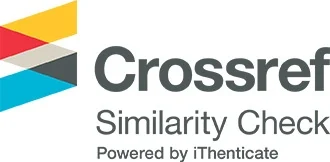| Paper template |
Reviewer Guidelines
1. Role and Responsibilities of Reviewers
Peer reviewers play a critical role in ensuring the quality, integrity, and validity of research published in LebMed.J. Reviewers are expected to:
• Provide objective, constructive, and unbiased feedback on manuscripts.
• Assess the scientific rigor, methodology, and originality of submissions.
• Identify strengths, weaknesses, and potential ethical concerns in the study.
• Maintain confidentiality and refrain from sharing manuscript details.
2. Criteria for Review
Reviewers must evaluate manuscripts based on the following:
• Clarity and significance: Does the study address an important research question?
• Methodological soundness: Are the methods appropriate, well-documented, and reproducible?
• Data validity and analysis: Are statistical analyses correctly applied and interpreted?
• Originality and novelty: Does the research contribute new knowledge to the field?
• Ethical compliance: Does the study adhere to research ethics and consent guidelines?
• Quality of writing and organization: Is the manuscript well-structured and clearly presented?
3. Reviewer Ethics and Confidentiality
Reviewers must adhere to ethical review practices, including:
• Declaring conflicts of interest before accepting a review request.
• Providing fair and unbiased assessments, free from personal or professional bias.
• Respecting confidentiality: Manuscripts and review discussions must not be disclosed or used for personal gain.
• Avoiding personal criticisms and ensuring feedback is constructive.
4. Review Process and Timeline
• Reviews should be completed within the given deadline (typically within 2–4 weeks).
• Reviewers must submit a detailed report, outlining strengths, weaknesses, and recommendations.
• Decisions can include: Accept as is, Minor Revision, Major Revision, or Reject.
• If needed, reviewers may suggest additional references or methodological improvements.
5. Communication and Ethical Concerns
Reviewers should:
• Report ethical issues (e.g., plagiarism, duplicated research, conflict of interest).
• Provide clear, specific feedback that authors can use to improve their manuscript.
• Suggest alternative reviewers if they feel unable to complete a fair review.
LebMed.J values the expertise and contributions of reviewers in maintaining high academic standards.








